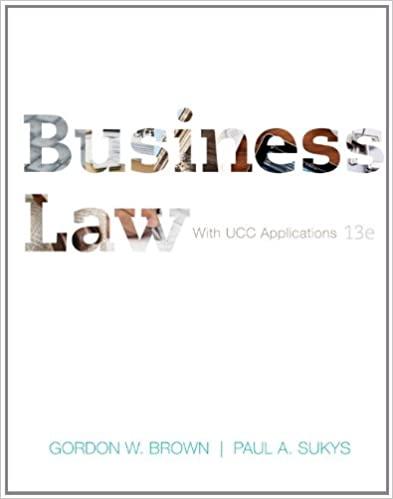The two dominant schools of economic thought in academia today are the Keynesians and the Austrians. Predictably,
Question:
The two dominant schools of economic thought in academia today are the Keynesians and the Austrians.
Predictably, the two schools agree on almost nothing and so there is a clear dialectic split between the two groups, a split which inevitably affects labor, labor law, and the labor union concept. The two schools of thought do agree on one premise, however, and that is a belief that capitalism is unstable. Unfortunately, they disagree on what to do about that instability.
At the risk of oversimplifying things (always a danger when speaking of economics) we can say that the Keynesians push for governmental intervention into the economy in order to protect the workers, to control debt, to provide support for industry, and to control the money supply. The basic idea is that the best way to control an inherently unstable economy is to intervene in a rational way. On the other side, the Austrian School, notably Friedrich Hayek and Joseph Schumpeter, argue that government intervention does more harm than good because it permits weak financial firms to survive, thus postponing, but not eliminating, an economic crisis, a crisis that, as strange as it may seem, is necessary for the economy to correct itself. To the Austrians the best route is to avoid interfering with what Schumpeter called the “creative destruction” of the capitalist system. To reiterate, the Keynesians see instability as a harmful trend born of human emotion and badly in need of rational governmental correction; while the Austrians see it as the natural movement of events that must remain untouched by the government.
Labor, unfortunately falls in the middle of this mess and, at times, is victimized by both sides. The Austrians would suspend or eliminate labor unions so that the unprofitable companies will collapse to be replaced by profitable companies that rehire the unemployed workers of the collapsed firms. The Keynesians, in contrast, see unions as a necessary governmental control device, granting workers the power to determine their own wages and benefits, and thus permitting the government, in the form of the National Labor Relations Board, the Courts, and Congress, to lawfully interfere in the operation of that business.
Is there a balancing principle hidden somewhere in this conflict or is the Keynesian-Austrian dialectic unresolvable? Which side seems to have the correct approach? Would you rather see the government step in or step out of the economy? As you read this chapter on labor law, try to see the problem from both perspectives, that of the employee (easy enough for most of us) and from that of the employer. [See Nouriel Roubini and Stephen Mihm, Crisis Economics (New York: Penguin Books, 2010), 47–59.]
Question
1. Both the Keynesians and the Austrians believe that capitalism is inherently unstable. Do you agree or disagree with is joint premise? Explain.
2. Would you rather see the government step in or step out of the economy? Explain.
3. Do you support or oppose the establishment of labor unions in private business? Explain.
4. Do you support the establishment of labor unions in governmental agencies, such as police departments, fire departments, colleges, and schools? Why or why not?
5. Do you support the selective use of labor unions to bargain for working conditions but not moneyrelated issues such as wages and benefits? Why or why not?
Step by Step Answer:

Business Law With UCC Applications
ISBN: 9780073524955
13th Edition
Authors: Gordon Brown, Paul Sukys





